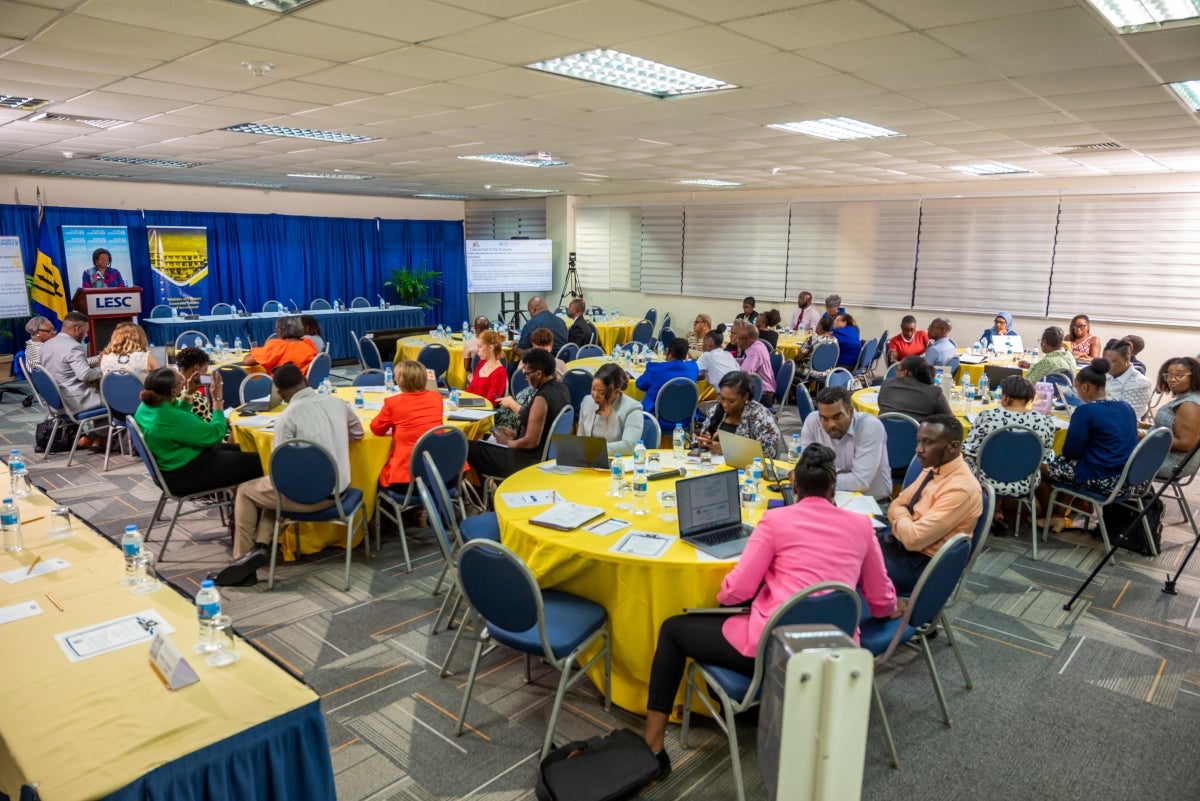Gender Equality and the Care Economy: The 5Rs of Decent Care Work: Recognise, Reduce, Redistribute Unpaid Care Work and Represent Paid Care Work
Date:
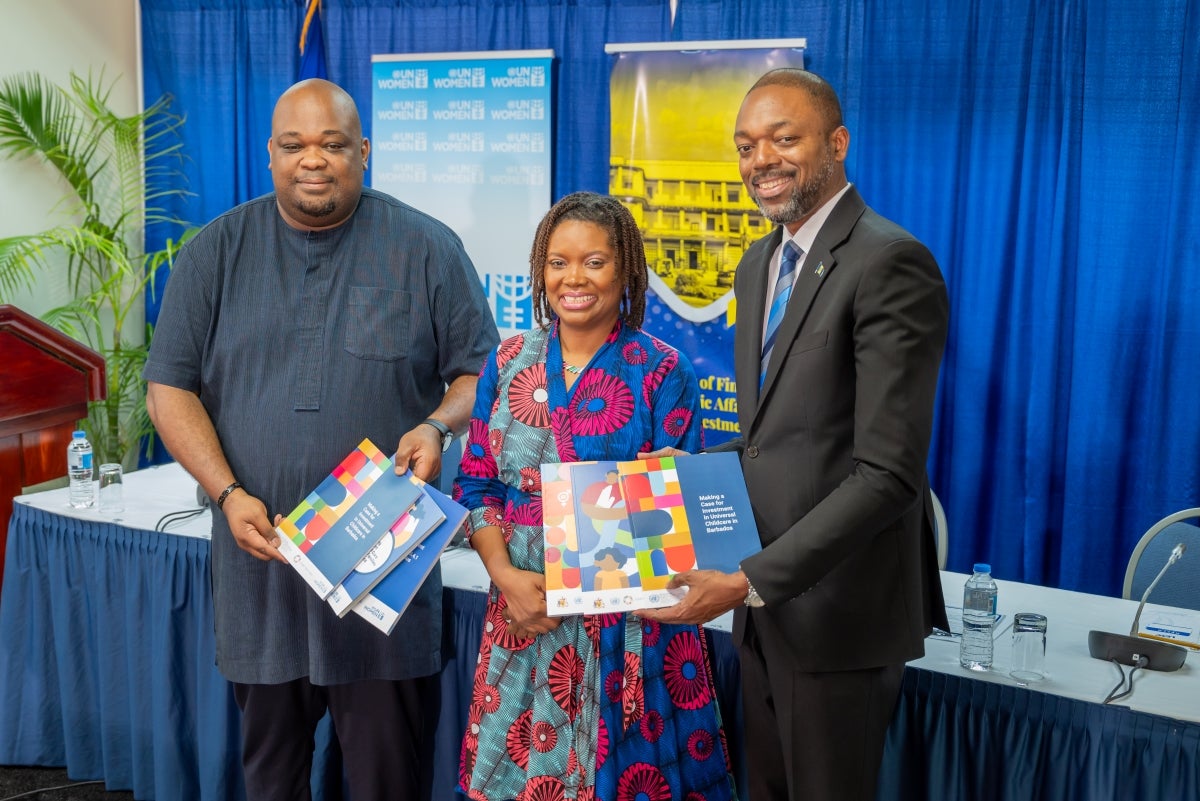
Isiuwa Iyahen, UN Women Deputy Representative presents UN Women research reports on paid and unpaid care to Barbados’ Minister of Labour Colin Jordan (right) and Senator Chad Blackman - Minister in the Ministry of Economic Affairs and Investment.
UN Women Photo/Lisle Warner
Bridgetown Barbados (November 28, 2024): In Barbados, women spend nearly 2.5 times more time on childcare than men, and close to three times more performing domestic work, childcare and adult care, combined.
Globally, figures show, women perform 75% of unpaid care work globally or 4 hours and 25 minutes daily. That is three times men’s average of 1 hour and 23 minutes per day.
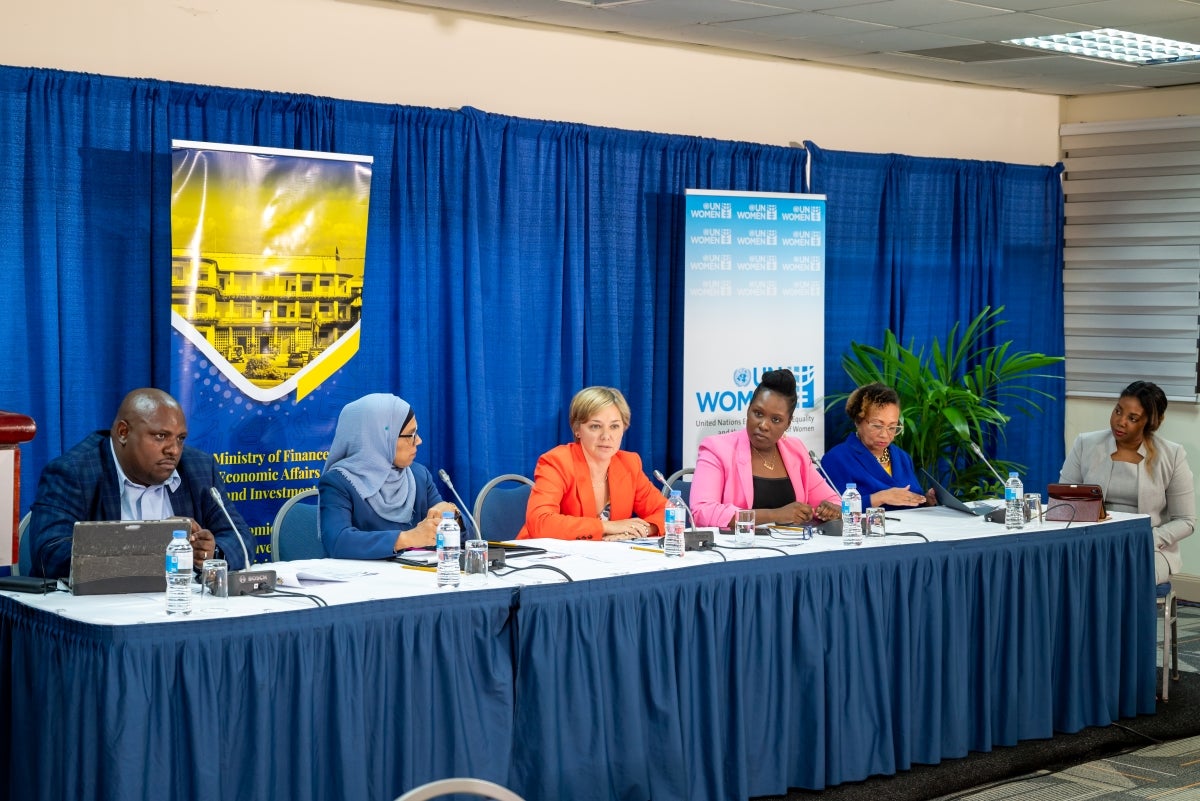
The figures and proposals for moving towards a more equitable distribution of this unpaid work and improved recognition and remuneration for paid care work were discussed at the @unwomencaribbean High-Level Policy Dialogue on Gender Equality and the Care Economy: The 5Rs of Decent Care Work: Recognise, Reduce, Redistribute Unpaid Care Work and Represent Paid Care Work.
Project lead, UN Women Caribbean Deputy Representative Isiuwa Iyahen presented research reports on the first ever nationally collected data on unpaid and domestic care work in Barbados and gender analysis on the impact on families for evidence-based policy and programme development in Barbados to Minister of Labour Colin Jordan and Senator Chad Blackman - Minister in the Ministry of Economic Affairs and Investment.
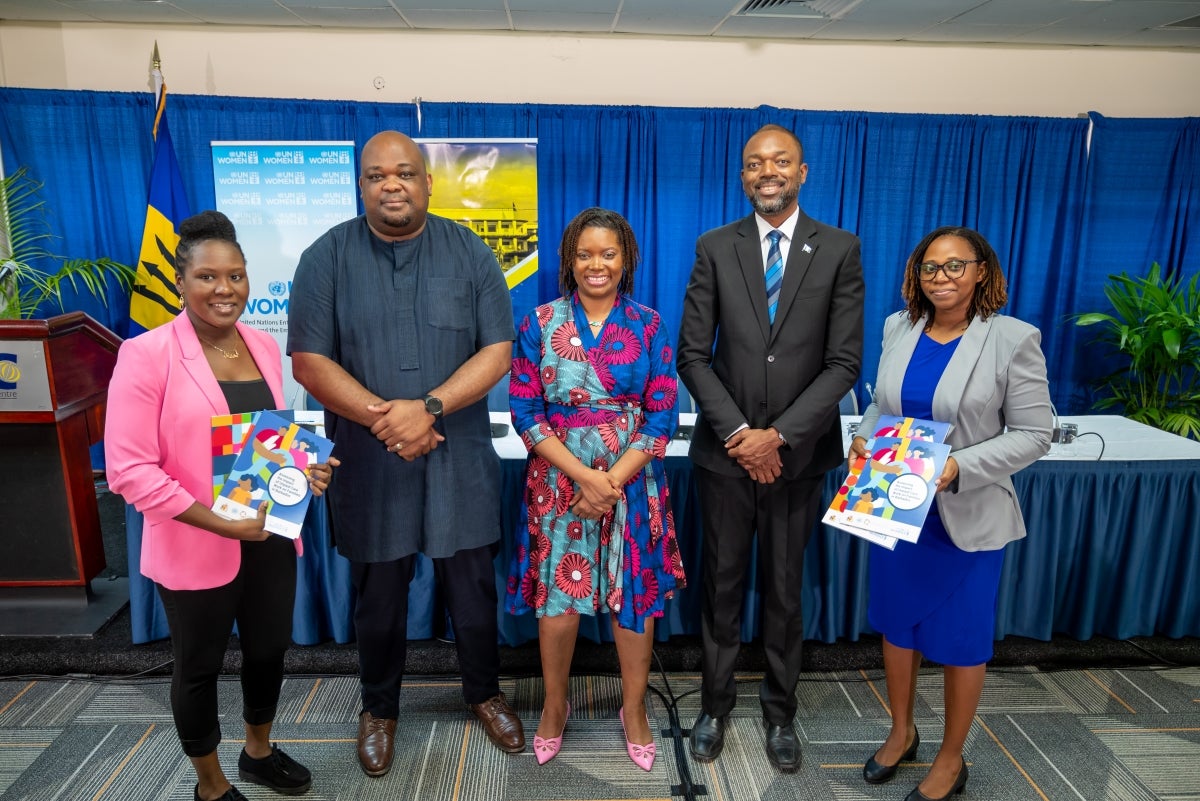
UN Women Deputy Representative Isiuwa Iyahen with the Ministers, and two of the consultant authors, Dr. Mahalia Jackman (left) and Dr. Daniele Bobb (right). Claudia Nicholson participated virtually.
The research products can be accessed here:
- Making a Case for Investment in Universal Childcare in Barbados
- Assessing the Impact of Unpaid Care Work on Families in Barbados
- Piloting the Measurement of SDG Indicator 5.4.1 in Barbados
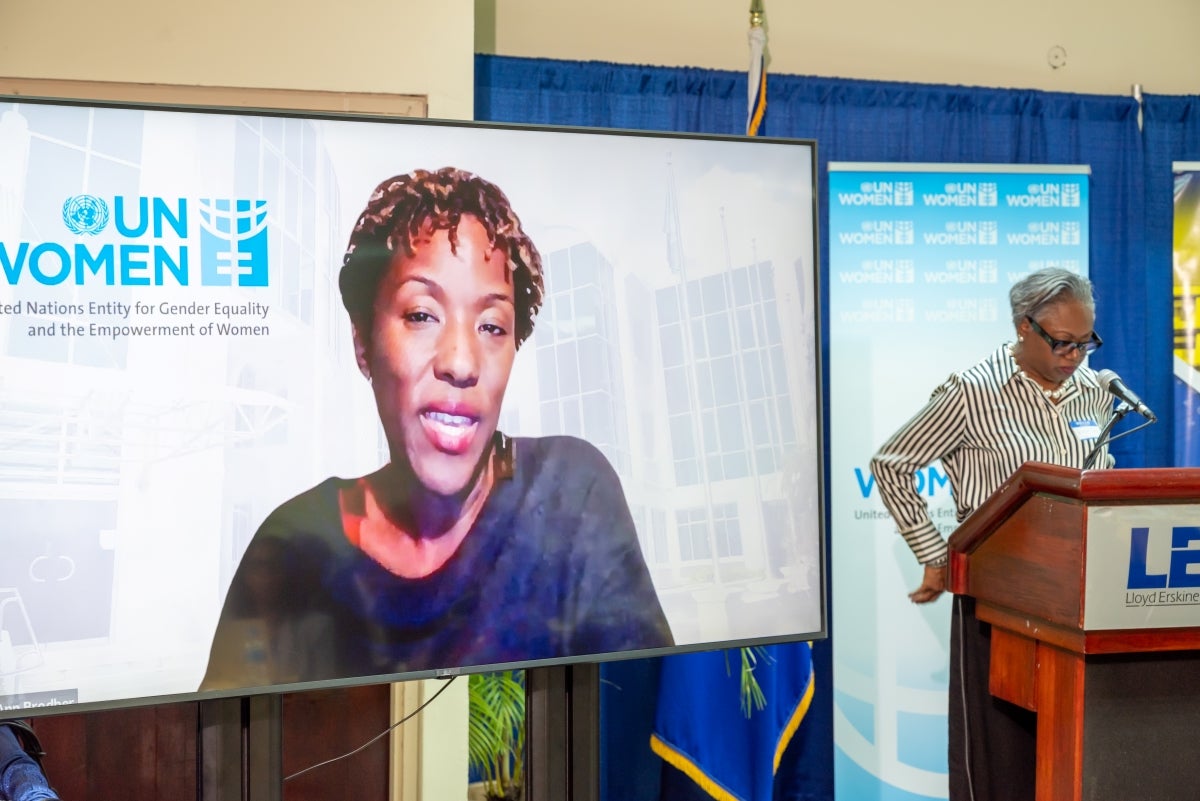
Tonni Brodber, Representative, UN Women MCO Caribbean in her virtual remarks said: “The gender gap in unpaid care work is one of the most glaring manifestations of inequality and between women and men.”
She added that paid and unpaid care work is essential to functioning of families, communities and Caribbean economies and core to social cohesion: “Focus must be given to the care economy even in the #16Days of Activism Against GBV, since care work is directly related to the conflict seen in homes and by redistributing and fair remuneration of paid work, family violence, time and economic poverty borne by women can be addressed”.
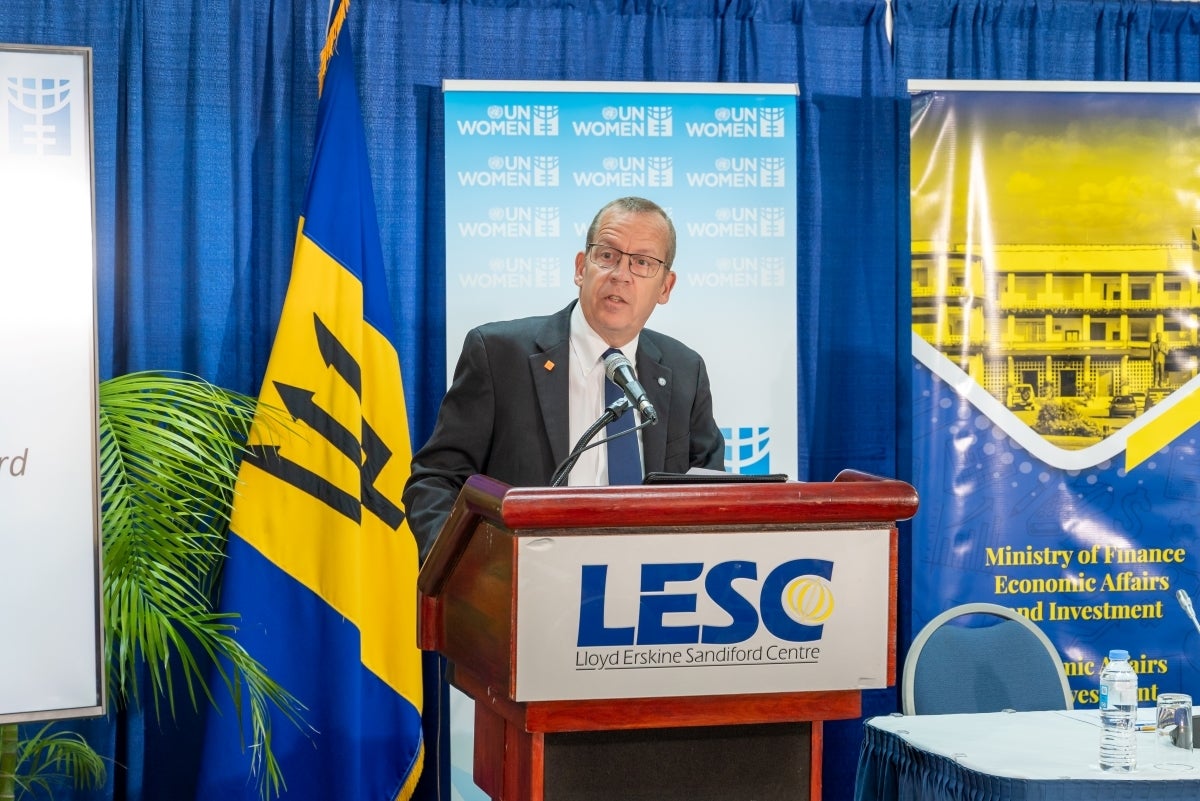
Simon Springett, Resident Coordinator, United Nations Barbados and the Eastern Caribbean said women and girls today have better educational opportunities, health outcomes, and political representation than ever before.
He continued: “But for many, those advances have not translated into a proportionate improvement in economic opportunity, as there remains an expectation that women need to shoulder a disproportionate share of unpaid care and domestic work responsibilities.
“Studies show that every dollar invested in the care economy yields higher economic returns than investments in more traditional infrastructure. Why? Because it empowers people—especially women, to participate more fully in the workforce, boosting household incomes and overall economic productivity. Investing in care means building a world where children thrive, workers excel, and elders are treated with dignity. It means recognizing that caring for others is not just a personal responsibility but a collective one”.
UN Women co-implemented this Joint SDG Fund Project with UNFPA Caribbean (lead agency) under the framework of the UN Resident Coordinator’s Office for Barbados and the Eastern Caribbean.
Under this project UN Women Multi Country Office (MCO) – Caribbean sought to increase access, availability, and completeness of quality data to support sustainable development in Barbados. The feedback from stakeholder focus groups (retired people, fathers, mothers, people living with disabilities, youth and faith-based groups) to assess the impact of Unpaid Care and Domestic Work (UDCW) on families and communities and their feedback can be viewed here:
https://caribbean.unwomen.org/en/digital-library/videos/498679
